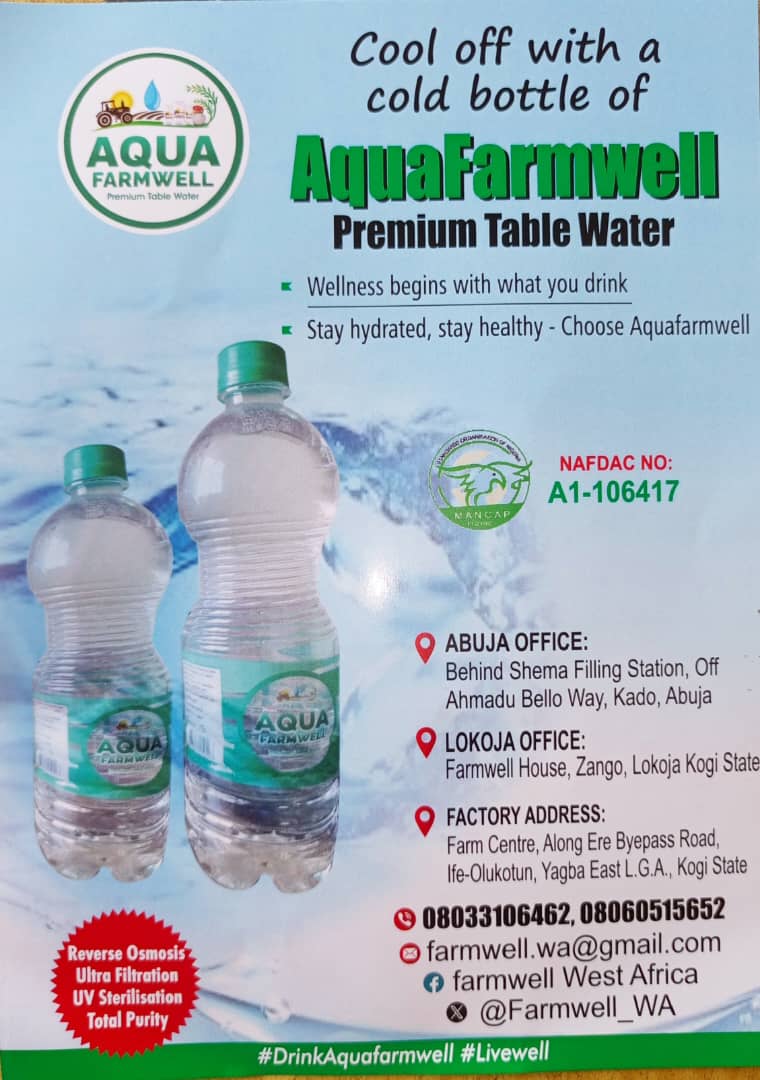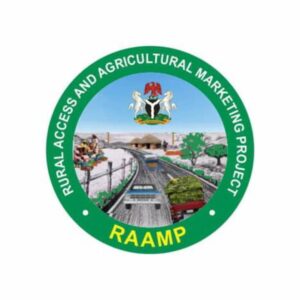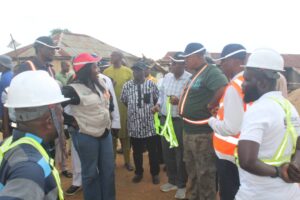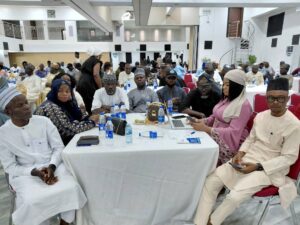

The Rural Access and Agricultural Marketing Project (RAAMP) has reached another remarkable milestone with the completion of 273.33 kilometers of rural roads across participating states in Nigeria — a major stride toward improving rural connectivity, enhancing agricultural productivity, and boosting economic opportunities for farming communities.
 This landmark achievement was disclosed by the National Coordinator of RAAMP, Engr. Aminu Mohammed Bodinga, during the 9th Implementation Support Mission, held at the Golfview Suites and Conference Center, Lagos. The mission brought together representatives of the World Bank, French Development Agency (AFD), and State Project Implementation Units (SPIUs) to assess progress, share experiences, and realign strategies for greater impact.
This landmark achievement was disclosed by the National Coordinator of RAAMP, Engr. Aminu Mohammed Bodinga, during the 9th Implementation Support Mission, held at the Golfview Suites and Conference Center, Lagos. The mission brought together representatives of the World Bank, French Development Agency (AFD), and State Project Implementation Units (SPIUs) to assess progress, share experiences, and realign strategies for greater impact.
Engr. Bodinga noted that the 273km milestone reflects the project’s steady advancement across the 19 participating states, describing it as “a demonstration of commitment to transforming Nigeria’s rural landscape.” He emphasized that RAAMP is not only delivering roads but also “building prosperity, connecting communities, and reducing post-harvest losses” by linking farmers to markets and enabling the seamless movement of goods and services.
 He further revealed that 18 states have successfully enacted their Road Sector Reform Bills, institutionalizing sustainable road management systems. Out of these, Akwa Ibom, Bauchi, Ekiti, and Sokoto States have gone a step further by fully operationalizing their reforms through the establishment of Directorates, Governing Boards, and dedicated maintenance budgets.
He further revealed that 18 states have successfully enacted their Road Sector Reform Bills, institutionalizing sustainable road management systems. Out of these, Akwa Ibom, Bauchi, Ekiti, and Sokoto States have gone a step further by fully operationalizing their reforms through the establishment of Directorates, Governing Boards, and dedicated maintenance budgets.
In his remarks, the World Bank Task Team Leader (TTL), Mr. Rakesh Tripathi, highlighted the importance of these reforms, stressing that the sustainability of RAAMP depends on the institutional strength of participating states. He cautioned that states unable to meet the reform benchmarks may be ineligible for the forthcoming project scale-up phase.
“RAAMP is a generational investment,” Tripathi said. “Its full impact may not be immediate, but if properly implemented, it will reshape Nigeria’s rural economy for decades. Transparency, accountability, and institutional readiness are key to sustaining the gains.”
 Tripathi also reiterated the need for states to comply strictly with Resettlement Action Plan (RAP) provisions before the commencement of any civil works. According to him, donor institutions place a high premium on social safeguard compliance, adding that compensation of affected persons must precede project execution to maintain credibility and alignment with global standards.
Tripathi also reiterated the need for states to comply strictly with Resettlement Action Plan (RAP) provisions before the commencement of any civil works. According to him, donor institutions place a high premium on social safeguard compliance, adding that compensation of affected persons must precede project execution to maintain credibility and alignment with global standards.
Also contributing, representatives of the International Labour Organization (ILO) reaffirmed their partnership with RAAMP through labour-based, community-driven approaches that not only create employment but also empower local communities with technical skills. The ILO’s collaboration focuses on capacity building, employment promotion, social safeguards, and policy support — ensuring that RAAMP’s infrastructure gains translate into decent work, inclusion, and human development in rural Nigeria.
One of the high points of the mission was the review of implementation progress in participating states, among which Kogi State drew commendation for its proactive engagement and tangible progress.
During the session, Engr. Sheidu Obansa Adamu, the State Project Coordinator of Kogi RAAMP, delivered an extensive presentation detailing the state’s milestones, challenges, and forward-looking strategies. His report highlighted the activities of several road segments and ongoing works designed to open up agricultural production belts.
The presentation received commendation from the mission’s technical experts and donor representatives, as well as participants who lauded Kogi’s clarity of vision and adherence to project standards.
Earlier in September, ahead of the Lagos session, a joint Agro-Logistics Centres (ALCs) assessment mission visited Kogi State as part of preparations for the 9th Mission.
The visit, which focused on the Aku Market site in Kogi Central, was aimed at evaluating the progress of rural market infrastructure designed to complement RAAMP’s road investments. The team made several recommendations to enhance design quality and ensure that the facility meets its objective of reducing post-harvest losses and improving rural trade efficiency.
Receiving the mission in Lokoja, the Kogi State Commissioner for Rural and Energy Development, Engr. Abdulmutalib Mohammed, reaffirmed the Ododo-led administration’s unwavering commitment to the success of RAAMP in the state. He commended the World Bank, AFD, and the Federal Project Management Unit (FPMU) for their consistent guidance and technical support, assuring that the Kogi State Government remains steadfast in implementing the project within approved frameworks and safeguard policies.
“RAAMP has become a model for sustainable rural transformation,” Engr. Mohammed said. “Under the leadership of Governor Ahmed Usman Ododo, Kogi State is committed to ensuring that every kilometer of road and every market structure built under this project adds value to the lives of our rural dwellers. This administration will continue to support every effort that brings meaningful and lasting development to our communities.”
The Commissioner also expressed confidence in the State Project Coordinator and his team for their professionalism and field-level coordination, which have earned the state commendations from partners and stakeholders alike.
The 9th Implementation Support Mission featured technical breakout sessions, progress evaluations, and strategy reviews involving Commissioners supervising RAAMP, Permanent Secretaries serving as SPMC Chairmen, Director Generals of State Rural Access and Road Agencies (RARA), and State Road Funds (SRF).
As the mission drew to a close, participants reaffirmed their collective resolve to deepen collaboration, strengthen reforms, and accelerate implementation toward achieving RAAMP’s objectives.
